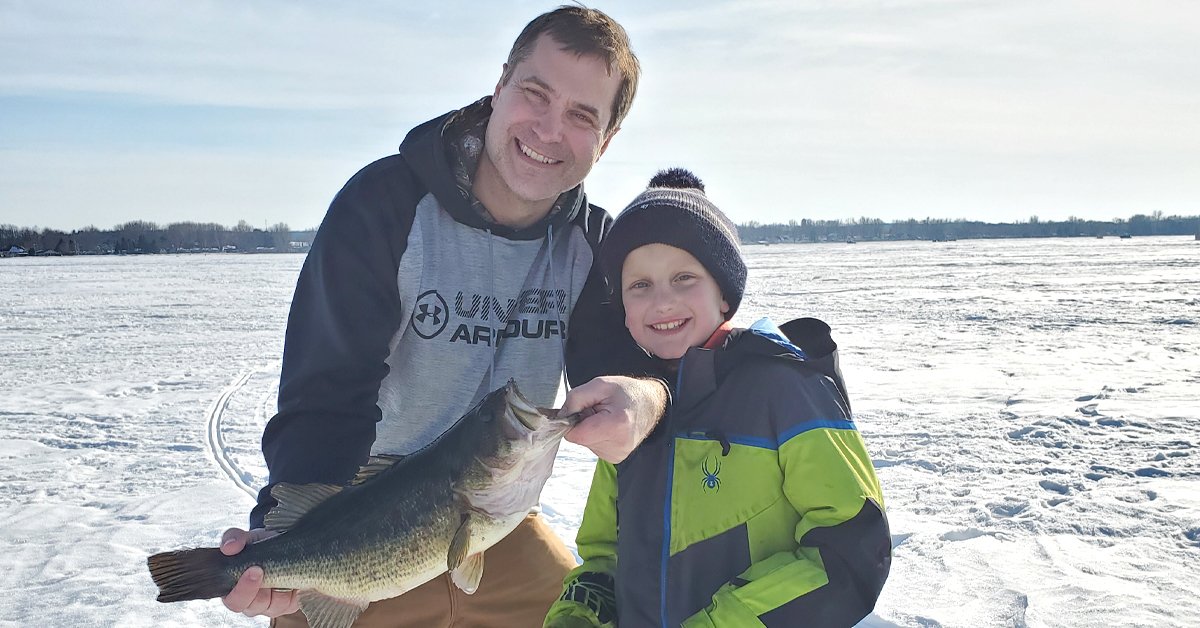
Michael Schnaubelt cultivated a strong work ethic years ago working on his parent’s farm.
His work ethic, including an emphasis on appreciating and embracing hard work, carried him through his career as an orthopedic surgeon.
“I grew up out in the country on a farm between Lake Geneva and Burlington in a small town called Springfield,” Schnaubelt says. “My dad was an airline pilot by trade, but always wanted a farm. So, us six kids in our family worked on the farm while he flew.”
Schnaubelt’s work ethic drove him to juggle multiple jobs to pay his own way through college and medical school. Today, he is an orthopedic surgeon with Orthopedics & Sports Medicine BayCare Clinic. He specializes in hip and knee joint replacement surgery and arthroscopic surgery for the shoulder, knee and ankle.
Interestingly, a medical career wasn’t part of Schnaubelt’s initial plans.
“When I went to college, I did my undergraduate work at Marquette in Milwaukee. I went into biomechanical engineering and I was dead set on doing that.”
That is, until Schnaubelt’s senior year. He was assigned a project in which he would engineer and create a medical device to be used with a laparoscope, a long tube with a camera used by general surgeons.
Unfamiliar with a laparoscope, Schnaubelt’s mother, a former nurse at Burlington Memorial Hospital, now Aurora Medical Center in Burlington, introduced him to several general surgeons she thought would be able to aid his understanding.
“They let me know what their current issues were with the devices they were using and they let me shadow them and watch a few surgeries. As soon as I watched them do surgeries, I was very interested in the medical side of it more so than the engineering.”
Eventually, Schnaubelt began working with orthopedic devices. One of his projects included researching designs for total joint replacements, he says.
“I also did some work in a gait lab with cerebral palsy kids and would make recommendations on how to improve their gait. Then, I would analyze them after different surgeries to see how well different procedures affected or improved their gaits.”
Schnaubelt attended medical school at the University of Wisconsin School of Medicine and Public Health. While there, the allure of orthopedics was hard for him to resist.
“I was geared towards orthopedics from the get-go just because of my engineering background. I liked other parts of medicine, too, but I really had my heart set on orthopedics right away. I did a lot of sports, too, and that definitely appealed to me as well.”
Schnaubelt came from “a big wrestling family,” he says. In fact, he was recruited by Marquette University in Milwaukee, Wisconsin, to wrestle. But ultimately chose to focus on academics.
After earning his medical degree, Schnaubelt completed his orthopedic surgery residency at Spectrum Health/Michigan State University in Grand Rapids, Michigan.
A joint replacement surgeon that ran one of Schnaubelt’s anatomy labs, got him interested in joint replacements.
“He was probably one of the biggest influences on me and is one of the most skilled surgeons I’ve ever worked under. He’d spend three to four hours at a crack with us in the anatomy lab going over surgical approaches and relevant anatomy. That guy was phenomenal to work with.”
Over the course of Schnaubelt’s five years of residency training, he completed more than 4,000 orthopedic cases. One of those cases included an elderly, retired nun needing a total hip replacement.
“It was going to be a very, very, challenging case,” Schnaubelt says. “I read her medical history and this was with that doctor that had taught us all of the anatomy that I had so much respect for and I said, ‘Are you seriously doing this long surgery on a 97-year-old? … I’m really worried about that.’ And he looked at me and said, ‘You have to learn to treat the patient and not the age or the X-ray.’ He said, ‘You watch, this lady will run circles around you afterwards.’ And she did. She was probably the peppiest 97-year-old I’ve ever seen and she tolerated the surgery great.”
It’s a lesson Schnaubelt never forgot.
He joined Orthopedics & Sports Medicine BayCare Clinic in 2004.
“What I like about orthopedics is that we get to treat people of all ages. That part always appealed to me,” he says. “We see people with problems from a very young age, sometimes infants or even right after birth that have dysplasia and we treat people all the way up to the 97-year-old nun.”
His favorite part about being an orthopedic surgeon?
“Seeing the smiles on people’s faces and hearing them talk about how they’re able to get back to activities, or golf again, or do whatever they’re trying to do again – it’s just cool to see,” Schnaubelt says.
Outside of the office, you’ll find Schnaubelt fishing, hunting, downhill skiing and spending time with his wife and four sons.